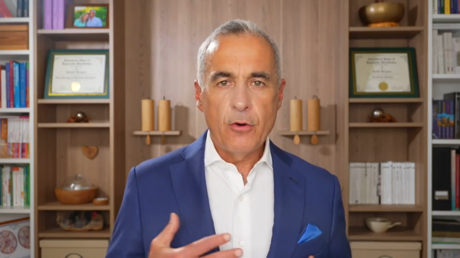ARTICLE AD BOX
Millions of Taiwanese headed to the polls Saturday for a presidential election, following threats from China that choosing the wrong leader could set the stage for war on the self-ruled island.
Beijing slammed frontrunner Lai Ching-te, the current vice president, as a dangerous "separatist" in the days leading up to the poll, warning voters to make "the correct choice" if they want to avoid military conflict.
Communist China claims self-ruled Taiwan, separated from the mainland by a 180-kilometre (110-mile) strait, as its own and says it will not rule out using force to bring about "unification", even if conflict does not appear imminent.
Voting began at 8:00 am (0000 GMT) at the nearly 18,000 polling stations across the verdant island, with almost 20 million people eligible to cast ballots.
Turnout at the last election in 2020 was almost 75 percent, but analysts predict a lower number this time.
Results are expected Saturday evening, with the outcome watched closely from Beijing to Washington -- the island's main military partner -- as the two superpowers tussle for influence in the strategically vital region.
During a raucous campaign, Lai of the Democratic Progressive Party (DPP) pitched himself as the defender of Taiwan's democratic way of life.
His main opponent Hou Yu-ih, of the opposition Kuomintang (KMT), favours warmer ties with China and accuses the DPP of antagonising Beijing with its stance that Taiwan is "already independent".
Hou's KMT has said it will boost economic prosperity, while maintaining strong relationships with international partners, including the United States.
The race has also seen the rise of the upstart populist Taiwan People's Party (TPP), whose leader Ko Wen-je has drawn support with an anti-establishment offer of a "third way" out of the two-party deadlock.
The KMT and TPP tried to strike a deal to join forces against the DPP, but the partnership collapsed in public acrimony over who would lead the presidential ticket.
All three parties held final rallies on Friday night in front of crowds of hundreds of thousands.
As well as a president, voters will also elect lawmakers to Taiwan's 113-seat legislature as well as a president.
Taiwan bans the publishing of polls within 10 days of elections, but political observers say the 64-year-old Lai is expected to win the top seat, though his party is likely to lose its parliamentary majority.
- Cog in the world economy -
Located on a key maritime gateway linking the South China Sea to the Pacific Ocean, Taiwan is home to a powerhouse semiconductor industry producing precious microchips -- the lifeblood of the global economy powering everything from smartphones to cars and missiles.
China has stepped up military pressure on Taiwan in recent years, periodically stoking worries about a potential invasion.
There was fresh bellicose rhetoric from Beijing on Friday evening, as the defence ministry issued a statement barely 12 hours before polls opened, vowing to "crush" any effort to promote Taiwan's independence.
Chinese warplanes and naval ships probe Taiwan's defences almost every day, and Beijing has also staged massive war games -- simulating a blockade of the island and sending missiles into its surrounding waters.
A blockade would turn the key Taiwan Strait into a chokehold, affecting the transport of 50 percent of the world's containers and costing the global economy at least $2 trillion, according to one analysis.
Chinese President Xi Jinping in a recent New Year's address said the "unification" of Taiwan with China was "inevitable".
Critics of the DPP blame current President Tsai Ing-wen for provoking China by insisting that Taiwan is "already independent", a stance that Beijing considers a red line.
(Except for the headline, this story has not been edited by NDTV staff and is published from a syndicated feed.)
.png)
 10 months ago
1
10 months ago
1








 English (US)
English (US)